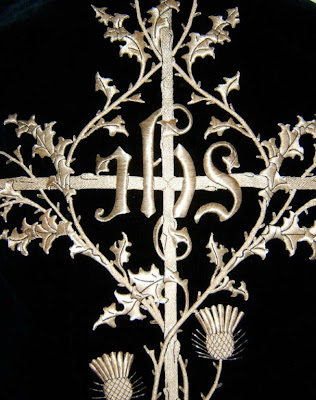
There is a crisis in the Church in Ireland, another scandal, another assault on its credibility. It is of course a continuation of the pederasty scandal and the Church's mishandling of it. At its heart is the Bishop of Cloyne, one of Pope John Paul's former secretaries Bishop John Magee. The bishop is accused of cover-up, of obfuscation, of lying, of incompetence, well, of everything really.
I feel sorry for the Irish Church, when we actually decided in the late 1970s that the sexual abuse of children was a serious a problem and not something that should be brushed under the carpet, as had happened everywhere, previously. In the rest of the world investigations revealed problems in the Church, in schools, in social services, youth organisations, orphanages, etc. etc. it was diffused, except in Ireland, because for the most part it was the Church which ran these other sectors of society, rather than social service, local authorities or independent charities.
The row in Ireland places all the wrath and blame on the Bishop of Cloyne, there are calls for his resignation, but for the moment he is still in place. Other bishops like the Archbishops of Amagh and Dublin come to his defence only to appear weasily and lacking in credibility, defending what appears to be the indefensible. Ultimately it damages the faith of the Irish people and plays directly into the hands of the anti-clerical and secularist groups in Ireland.
The truth of the matter is that Rome alone can depose Bishop Magee, he can resign, his brother bishops can press him to go, his clergy can express their lack of confidence in him but there is no way for the local Church to get rid of him. Indeed, the theology of the relationship of the bishop and his Church doesn't quite allow for his disposition, so often an incompetent bishop is left in place to sort out the mess he has created. Serious financial mismanagement, open co-habitation with a concubine might just cause Rome to act but very little else.
Call me a wet liberal if you must but we really do need some mechanism to make bishops accountable and possibly ultimately to depose them. In the past there was a tension between the bishop and senior clergy, historically there are accounts of bishops being denied access to their cathedrals, the rights of clergy and therefore of their parishes formed an anvil hardened by the Church's law and custom, and Rome formed a hammer, in between was the bishop. Now the bishop is in so many ways is unconstrained, he can establish a diocese of lay consultants and advisers independent of his clergy, a virtual diocese within his diocese, unaccountable to anyone.
The ancient model still much in evidence within the Byzantine Churches is that the bishop does very little that is not in consort with his clergy, he is their father and ruler, they are his sons, advisers and at times critics, without their good will he can do very little.








































